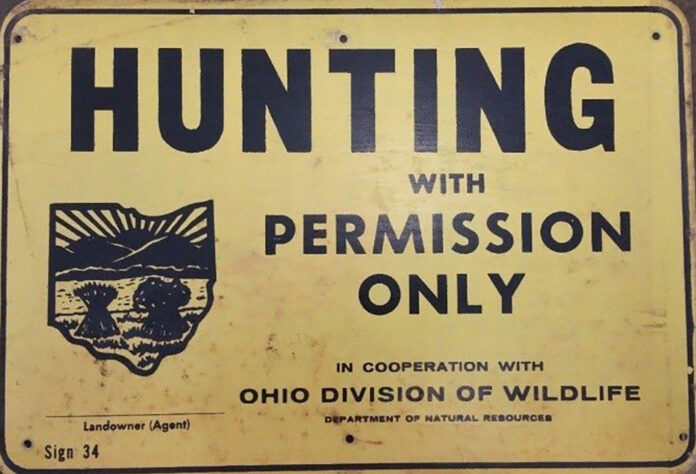Chipper and Gretchen, also known as the two stooges, were working the edge of the nursery a dozen yards in front of me. It was the last day of the small game season, and I was hoping those two frolicking beagles might kick up one more pheasant.
So far, we’d jumped several hens on this pass, and it seemed like a good chance that a rooster was on the run. We were approaching the end of the field when it happened.
Gretchen gave her high-pitched yip, and Chipper began his bulldozing run through the grass. Their noses had guided them into visual contact with the birds. I stopped and got ready.
Five birds took to the air simultaneously: four hens and two roosters. One of those brightly festooned rockets stayed within the protection of his harem while the other turned in the opposite direction. Offered a clear shot without the chance of hitting one of its protected mates, the Ithaca double barked once and the bird folded in a puff of feathers. It was my second rooster of the day, ending my hunting season.
I was walking out, game bag heavy and two tired dogs trailing behind me, when I spotted a pickup truck bouncing down the farm lane in my direction, driving far too fast for the ruts and potholes.
I stopped and called the dogs over and slipped leashes on each as the truck came to an abrupt stop 50 feet away. A very angry woman climbed out and began berating me for trespassing. It was made very clear to me that the local game warden and the sheriff were on their way, and I’d better not try to run. I tried to speak, but quickly understood that she still wanted to expound on my criminal intentions.
Growing up with an Irish mother, I’d learned that trying to interrupt this tirade was not for the faint of heart. I waited for permission to speak.
Finally, as she’d either gotten her anger out or had run out of expletives, I told her to take my hunting license off my hunting vest. She happily removed it and said she would be giving it to the warden. I asked her to take a look at the back side, which is normally blank. There, on that space was her name — gracefully signed by her own hand. At first confused, she turned it over and read my name. “You’re the Abrams boy?”
“Yes, ma’am,” I replied. “You signed it back in August when I first bought it. I’d stopped by your farm to ask if it would be okay. You said it was fine as long as I didn’t shoot any quail.”
She looked up with a little embarrassment. “I’d forgotten you stopped … how did you get here?”
“I walked from home. I just live a half-mile that way,” I explained as I gestured over my shoulder.
She handed back my license with an awkward smile and said that she was sorry as she told me about other trespassing issues that she’d been dealing with. Suddenly, she abruptly said she had to get back to a phone and call off the cavalry, but reaffirmed that I was fine to hunt on the farm. She and that old truck bounced hurriedly back down the lane, I’m sure to tell the warden that she didn’t mean to cry wolf.
Trespassers
Unfortunately, most wildlife officers don’t see the issue of trespassing play out quite like that long-ago day. In fact, during both the hunting and fishing seasons, the number one complaint to most officers involves someone trespassing on private property without permission.
As more rural areas are subdivided and houses spring up in rural woodlots, the problem has only gotten worse. With roughly 95% of Ohio’s lands privately held, one can understand the magnitude of the issue. The problem puts a great strain on both the landholders, who suffer unwanted guests, and the sportsmen and women who are honestly seeking permission from wary property owners. What can hunters and anglers do to gain that precious permission to enter private land?
First of all, who needs permission? That’s actually pretty easy. Ohio law requires that you must have written permission to be on private property to hunt, fish or trap, and that includes crossing property on the way to areas you have permission to be on as well as anytime you are pursuing wounded game. The landowner retains the right to refuse your entry.
Getting permission
With fishing season now in play and turkey hunting around the corner, it’s time to get started. Here are some basic pointers that might help you convince a landowner to give you permission.
Know the laws! Section 1533.17 of the Ohio Revised Code requires a person to obtain written permission from a landowner or the landowner’s agent before hunting on private lands or waters and to carry the written permission while hunting. A hunter who doesn’t obtain written permission can be subject to criminal charges.
Don’t wait until the day you plan to hunt or fish. Not all landowners are sportsmen or women and many of today’s farms are owned by non-farmers who lease farming rights to others. They may want time to think about the idea or even ask others about your reputation. As for that guy on the tractor farming leased ground, unless specified, they aren’t the ones that can grant permission to trespass.
There are good and bad times to go knocking. Holidays, early mornings, dinner time and after dark are not the best times to ask. Arrive neatly dressed and have some prepared information to give to the landowner, including your name, address, phone, email and even a reference or two. You can also offer them the most current booklet of fishing or hunting regulations. Even more important, offer them a copy of the rules governing private property, not only the section outlined above but of the following bit of information.
Can the landowner be sued for your actions? This is where I’ll quote directly from the Ohio Revised Code, section 1533.181. No owner, lessee or occupant of premises: 1. Owes any duty to a recreational user to keep the premises safe for entry or use; 2. Extends any assurance to a recreational user, through the act of giving permission, that the premises are safe for entry or use; 3. Assumes responsibility for or incurs liability for any injury to person or property caused by any act of a recreational user. (B) Division (A) of this section applies to the owner, lessee or occupant of privately owned, nonresidential premises, whether or not the premises are kept open for public use and whether or not the owner, lessee, or occupant denies entry to certain individuals.
The information found in ORC 1533.181 is extremely important to most landowners. After all, there’s always a palpable fear of a lawyer’s wrath if something unfortunate happens. That section helps protect the landholder from the risk of a lawsuit and is an affirmative defense. There is a bit of a catch; this immunity doesn’t apply if the landowner charges a fee for hunting, unless the fee is a payment made under a hunting lease with a hunter or hunting group. Agreements such as those probably do need an attorney’s eye prior to implementation.
If given permission, remember to ask if others might also be hunting the property. This helps lessen the possibility of negative interactions (which the landowner will hate), and adds a layer of safety to your hunt. Be sure to ask about any troublesome areas that they may prefer you avoid. Be certain to ask about parking and provide them with a list of vehicles you may be driving.
If the landholder says no, suck it up buttercup. They may offer you a reason, they may not. Regardless, allow them to keep all the information you handed them and thank them for their time. Whether you’ve received a yes or no, mail them a hand-written note — the kind that’s got a stamp and arrives in a physical mailbox — thanking them for their consideration. Taking that little bit of extra effort will surprise them as well as maybe having a “no” changed to a future “yes.” People respond positively to respect and courtesy.
“Respect for ourselves guides our morals, respect for others guides our manners.”
— Laurence Sterne













